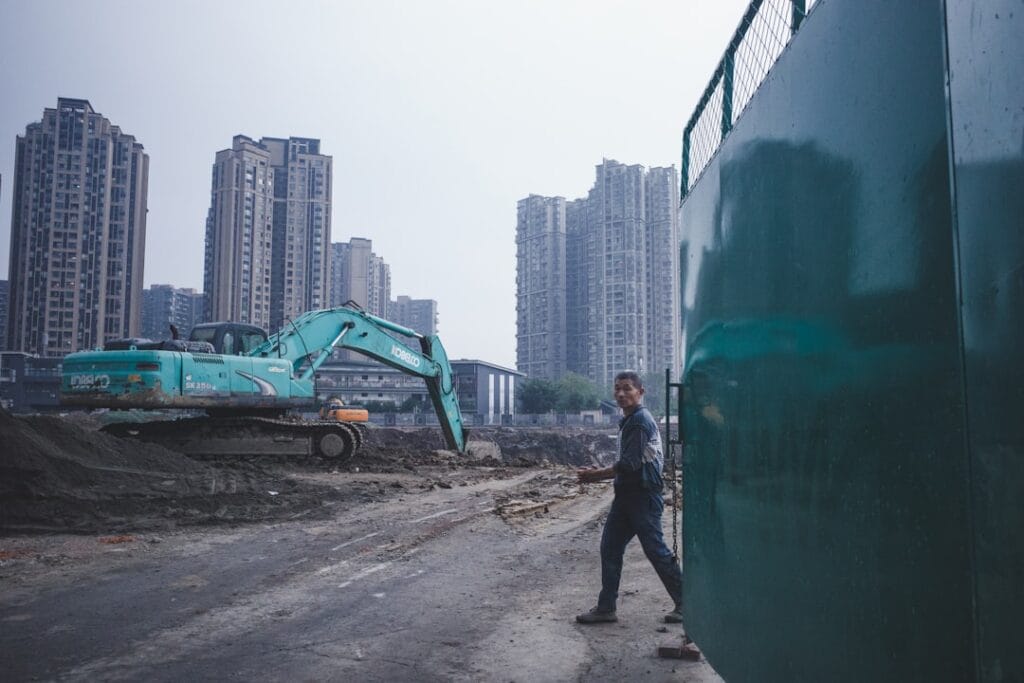Introduction
China’s economic slowdown and property crisis have been hot topics in global economic discussions. As the world’s second-largest economy, any fluctuations in China’s economic health can have far-reaching consequences. In recent years, concerns have arisen about the sustainability of China’s growth trajectory and the potential risks posed by its booming property market. Understanding the dynamics of China’s economy and property market is crucial for investors, policymakers, and anyone interested in global economic trends.
This blog post delves into the factors contributing to China’s economic slowdown and the challenges faced by its property market. We will explore the implications of these issues on the domestic and global economy, as well as potential strategies to navigate the uncertainties in China’s economic landscape.
Main Section: Factors Contributing to China’s Economic Slowdown
1. Declining GDP Growth Rates
China’s GDP growth has been gradually slowing down in recent years, reflecting structural shifts in the economy. Factors such as demographic changes, declining productivity growth, and trade tensions have contributed to this deceleration. Understanding the underlying reasons for China’s slowing GDP growth is essential for assessing the overall health of the economy.
2. Rising Debt Levels
Another key factor impacting China’s economic slowdown is the sharp rise in debt levels, particularly in the corporate and local government sectors. High debt burdens can constrain economic growth, leading to concerns about financial stability and potential debt crises. Addressing the issue of mounting debt is crucial for sustaining long-term economic growth.
Main Section: Challenges in China’s Property Market
1. Property Bubble Risks
China’s property market has experienced rapid price increases in major cities, raising concerns about a potential property bubble. The overheated market poses risks of speculative investments, housing affordability issues, and financial instability. Monitoring the dynamics of China’s property market is essential to avoid a property market crash with systemic repercussions.
2. Government Regulations and Policy Uncertainty
The Chinese government has implemented various measures to cool down the property market, including tightening lending regulations and imposing restrictions on property purchases. However, frequent policy shifts and uncertainties can create challenges for both investors and developers, impacting market sentiment and investment decisions.
Practical Examples and Case Studies
Case Study: Evergrande Group’s Debt Crisis
One prominent example of the challenges in China’s property market is the debt crisis faced by Evergrande Group, one of China’s largest property developers. The company’s mounting debt levels and liquidity issues have raised concerns about potential contagion effects on the broader economy and financial system.
Example: Impact on Global Supply Chains
China’s economic slowdown and property crisis can also have ripple effects on global supply chains. Disruptions in China’s real estate sector can impact construction activities, raw material demand, and overall economic output, affecting businesses worldwide that rely on Chinese manufacturing and exports.
Actionable Insights and Tips
- Monitor China’s economic indicators regularly to stay informed about the country’s economic health.
- Diversify investment portfolios to mitigate risks associated with China’s economic slowdown and property market fluctuations.
- Stay updated on government policies and regulations affecting the property market to make informed decisions.
- Consider consulting with financial advisors or experts specializing in Chinese markets for personalized insights and strategies.
- Monitor China’s economic indicators regularly to stay informed about the country’s economic health.
Conclusion
In conclusion, China’s economic slowdown and property crisis present complex challenges with significant implications for both domestic and global economies. Understanding the underlying factors contributing to these issues is essential for making informed decisions and navigating uncertainties in China’s economic landscape. By staying informed, monitoring key indicators, and adopting prudent risk management strategies, stakeholders can better position themselves to withstand potential shocks and capitalize on opportunities in the evolving Chinese market.
Key Takeaways:
- China’s economic slowdown is influenced by factors such as declining GDP growth rates and rising debt levels.
- The property market in China faces challenges related to potential bubble risks and government policy uncertainties.
- Monitoring China’s economic and property market developments is crucial for investors and businesses with exposure to the Chinese market.
Engage further by exploring in-depth research reports, market analyses, and expert opinions on China’s economic trends and property market dynamics to enhance your understanding and decision-making process.


